HISTEUROPA - CONFERENCES-DEBATES-SEMINARS
ACADEMIC CONFERENCES, SEMINARS
Co-organisation with the University of Genova (Italy) of the conference ‘Resistance and European integration: the origins of a common identity?’, 9-10 October 2025 (Forthcoming)
« France, Europe et colonisation : les nouvelles tendances historiographiques » (France, Europe and colonization: new historiographical trends), séminaire de recherche associant les étudiants du Master Métiers de l’Historien et du Master de l'Enseignement, de l'éducation et de la formation (MEEF), Saint-Etienne (France), 7 novembre 2024
How the European institutions communicate Europe's cultural and historical heritage’.
Associazione Italiana di Studi Europei – AUSE Summer School Communicare l'Europa, costruire l'Europa, Genova Nervi, 4-7 september 2024
‘The relaunching of the destruction process of the Soviet heritage in Europe in the wake of the Russian-Ukrainian war’. International Conference De-patrimonialization and re-patrimonialization in post-Soviet Europe organized by the Faculty of European Studies - Babeș-Bolyai University, Cluj-Napoca (Romania), 18-19 July 2024
Reappropriating their history and heritage was a major challenge for countries that lived under Soviet rule until 1991. The debunking of statues was the most spectacular sign of this process of identity resynchronization. At the same time, and in a more discreet but profound way, the liberation of minds was reflected in the implementation of a new narrative of the history of these countries and the creation of a new heritage offering. Yet, more than 30 years after the fall of the Soviet empire, Russian power has not abandoned its project to control Soviet heritage. Ukraine is not the only country involved. Politicians in the Baltic States are now being accused by Moscow of "hostile actions against Russian memory", and are being prosecuted for "destroying and damaging monuments to Soviet soldiers" from the Second World War. Search warrants have been issued against them, in defiance of the principles of international law and democracy. Other countries affected by this policy include Moldova, Georgia. My speech begins with a question: Why has the memorial plot dedicated to the Red Army, symbolised by a tank, been preserved in the cemetery in Cluj-Napoca (Romania) while in the heart of the city stands a monument paying tribute to the ‘anti-communist resistance’?
‘Heroisation of the sporting body and Nazism:the strange reception of the film OLYMPIA in France’, Comité des Travaux historiques et scientifiques, Paris, 23 may 2024
Nazism used the image as a propaganda vehicle, but also as a harbinger of a post-democratic “new world”. The theme of the body as a source of “regeneration” was at the heart of this anthropological revolution. The Berlin Olympic Games (1936) provide a good illustration of this ambition. We take a closer look at this issue through the lens of Leni Riefenstahl's film ‘OLYMPIA’ (title in German, ‘Les Dieux du Stade’ in French). How did “Hitler's muse” use the Games to construct an imaginary of power through the heroisation of bodies? But we'd like to take this analysis a step further, by tackling the tricky question of how her film was received in France. How did this film fascinate France, from left to right, to the point where, at the height of the Popular Front, the making-of of the film, presented at a gala evening on July 2, 1937, was awarded the Exposition's “Grand Prix diploma”? On this occasion, the myth of Olympism made sacred by the cinematographic image functioned as a lure to “screen” an untimely reality that we refused to find unbearable. For Europe is on the eve of a conflict that will destroy it.
‘Heritage, culture and geopolitics’, conference-debate with Professor Laurent Martin organised by students from the Arts Office of the Grenoble Institute of Political Studies, 22 March 2024
"Représentations et historiographie du nucléaire en France et en Europe. De la bombe atomique à l'énergie civile" (Representations and Historiography of nuclear in France and Europe. From the atomic bomb to civil energy). Séminaire de recherche associant les étudiants du Master Métiers de l’Historien et du Master de l'Enseignement, de l'éducation et de la formation (MEEF), Saint-Etienne (France), 5 octobre 2023
"Feminist, anti-fascist, Europeanist and co-founder of the largest French Resistance movement: Berty Albrecht (1893-1943)". Wer ist Walter? Resistance against National Socialism in Europe.
Institut Marc Bloch, Berlin, 15-16 May 2023. ‘Wer ist Walter?’ is an international project organised by crossborder factory (Berlin/Germany), the History Museum of Bosnia and Herzegovina (Sarajevo), CIFE (Nizza / France) and the Jasenovac Memorial Site (Croatia), with the support of the Foundation Remembrance, Responsibility and Future (EVZ).
“How to make community of (with) diversity? The European project and the fiction of historical and cultural heritage”. Lecture at the “Apheleia” international seminar, Instituto Politécnico de Tomar (Portugal), March 23, 2023
-
NON-ACADEMIC LECTURES, INTERVIEWS AND DEBATES
‘History and memory of escapees from Nazi Europe via Spain and Portugal during the Second World War’. Invitation to the 13th Cultural Routes of the Council of Europe Annual
Advisory Forum, Visegrád, Hungary, 25-27 September 2024
‘Comment patrimonialiser l’histoire des évadés de l’Europe nazie par la montagne pyrénéenne pendant la Seconde Guerre mondiale’ (Patrimonializing the story of those who escaped from Nazi Europe via the Pyrenean mountains during the Second World War), Association ‘ITINERAIRES LIBERTE PYRENEES – EUROPE’ & Maison de l’Europe des Pyrénées, Saint-Laurent de Neste, 30 mai 2024.
I supported the Association ‘ITINERAIRES LIBERTE PYRENEES - EUROPE’ and its scientific council with a conference (as well as various documents and exchanges) because the theme corresponds to the ambition of the ‘HistEuropa’ module. Indeed, the aim is to encourage and propose an approach to the history of Europe that I would describe as ‘polyphonic’, i.e. one that allows us to hear a variety of viewpoints on the way in which European citizens have committed themselves to fighting against a Europe that is liberticidal. While commemorations have long been confined to a national narrative for political purposes, the historian must highlight what I have called ‘inclusiveness’ in my Module project. However, the movement of men and women (55,000 persecutees or resistance fighters) who left Nazi-fascist Europe via the Pyrenees mountains (from 1939 to 1945) was multinational and involved the intervention of several states (principally: Germany, France, Spain, Portugal, Andorra, Great Britain and the United States). This unique historical phenomenon, which is largely unknown, gives us a better grasp of the transnational reality of European history. It is also an opportunity for me to develop the thesis that the idea of a peaceful and democratic Europe was embodied by these refugee-resistance fighters who left their jobs, families and homelands to join, for the most part, the liberation armies (mainly from North Africa, after 8 November 1942). Their commitment enabled them to better understand and spread the humanist values that would serve as the meta-political foundation of post-war Europe.
Debate on the European Elections (6-9 June 2024) by video with Daniel Cohn-Bendit,UEF, 22 May 2024
‘Henri Frenay: a federalist point of view on Germany, France and Europe from 1937 to 1957’, Conference-debate at the Centre international de formation européenne (Nice), 5 May 2023
‘What contemporary historians have to say about Ukraine's European history’, The Glob's book club, dinner-debate at the restaurant ‘Chez Stéphane Martin’, 67 rue des Entrepreneurs, 75015 Paris, 27 March 2024
‘Henri Frenay et le Général de Gaulle’, Fondation de la France Libre (Paris), March 13, 2024. https://www.france-libre.net/robert-belot-henri-frenay-au-general-de-gaulle-video-de-la-conference/
« Elle ne s’est pas dérobée. Berty Albrecht (1893-1943) » (She did not shy away. Berty Albrecht, 1893-1943).
A lecture given on this pro-European Resistance fighter who was arrested by the Nazi occupiers in 1943 and committed suicide in Fresnes prison (so as not to speak) to mark Women's Day. The conference was organised by Lieutenant-Colonel Élise Maillard, in charge of the Bron Gendarmerie Company (160 gendarmes, including 40 women). Lyon, 8 March 2024
This conference took place at the ‘Lanterne’ Temple, where Berty Albrecht and Henri Frenay listened to the Resistance sermons of pastor Roland de Pury. He delivered a famous sermon on 14 July 1940 entitled ‘Thou shalt not steal’. Hence the title of my lecture.
Conference-debate at the Spring University of the European Union of Federalists (Lyon, 27 May 2023), with Pr Céline Spector (Paris-Sorbonne) on the theme: Which demos for a federal Europe?, Conference title: ‘Are Europeans (can they be) a people?’
https://www.uef.fr/universite-de-printemps-uef-france-2023
‘La Resistenza e la rinascita dell’idea europea (1942-1947)’, Centro Einstein di Studi Internazionali, Torino, 4 maggio 2023. https://torinoebraica.it/wp-content/uploads/2023/04/OPUSCOLO-25-aprile_DEF.pdf
" Contre la dé-connaissance de l’Europe " (How to figth against the false Knowledge concerning Europa?). Les entretiens fédéralistes (UEF-France), 18 février 2023.
"Berty Albrecht. Un engagement dans les luttes du 20e siècle " (Berty Albrecht. A commitment to the struggles of the 20th century), Association Etudes & Recherches. Cycle « Spiritualité et engagement au 20e siècle », Paris, 10 decembre 2022
https://www.youtube.com/watch?v=C_GG8A9AkO8
****

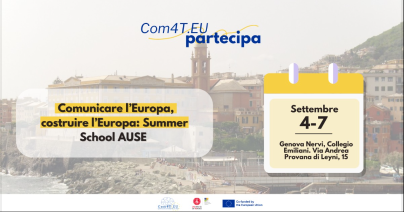
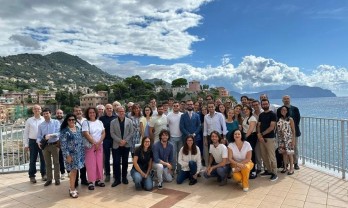
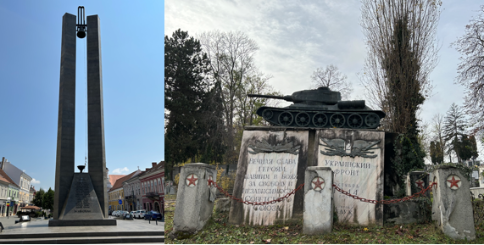
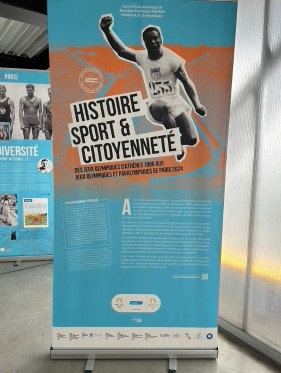
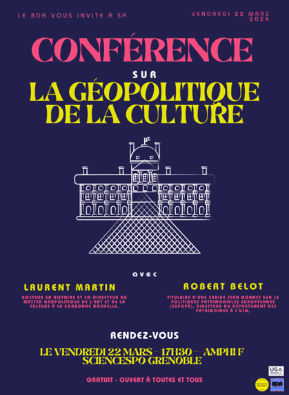
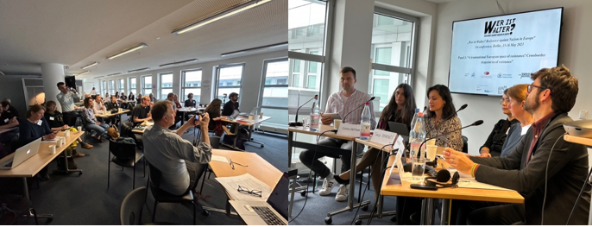
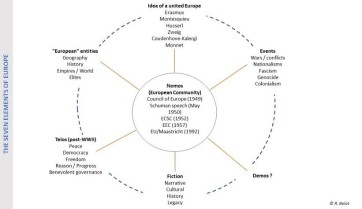
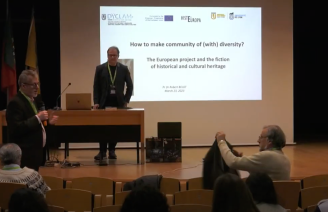
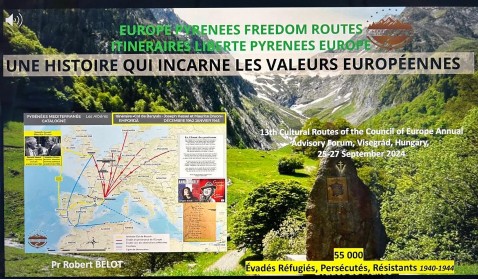
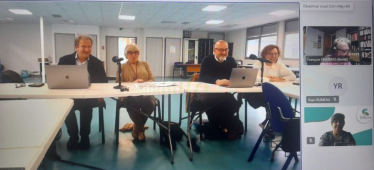
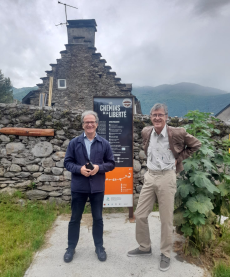
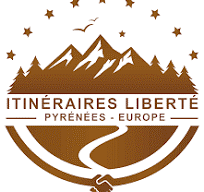
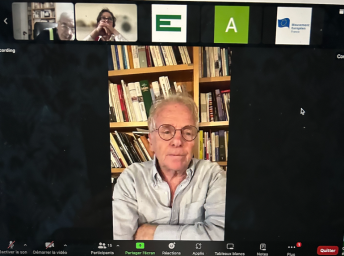


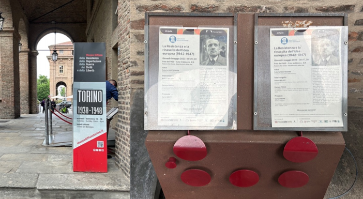
 Université Jean Monnet
Université Jean Monnet